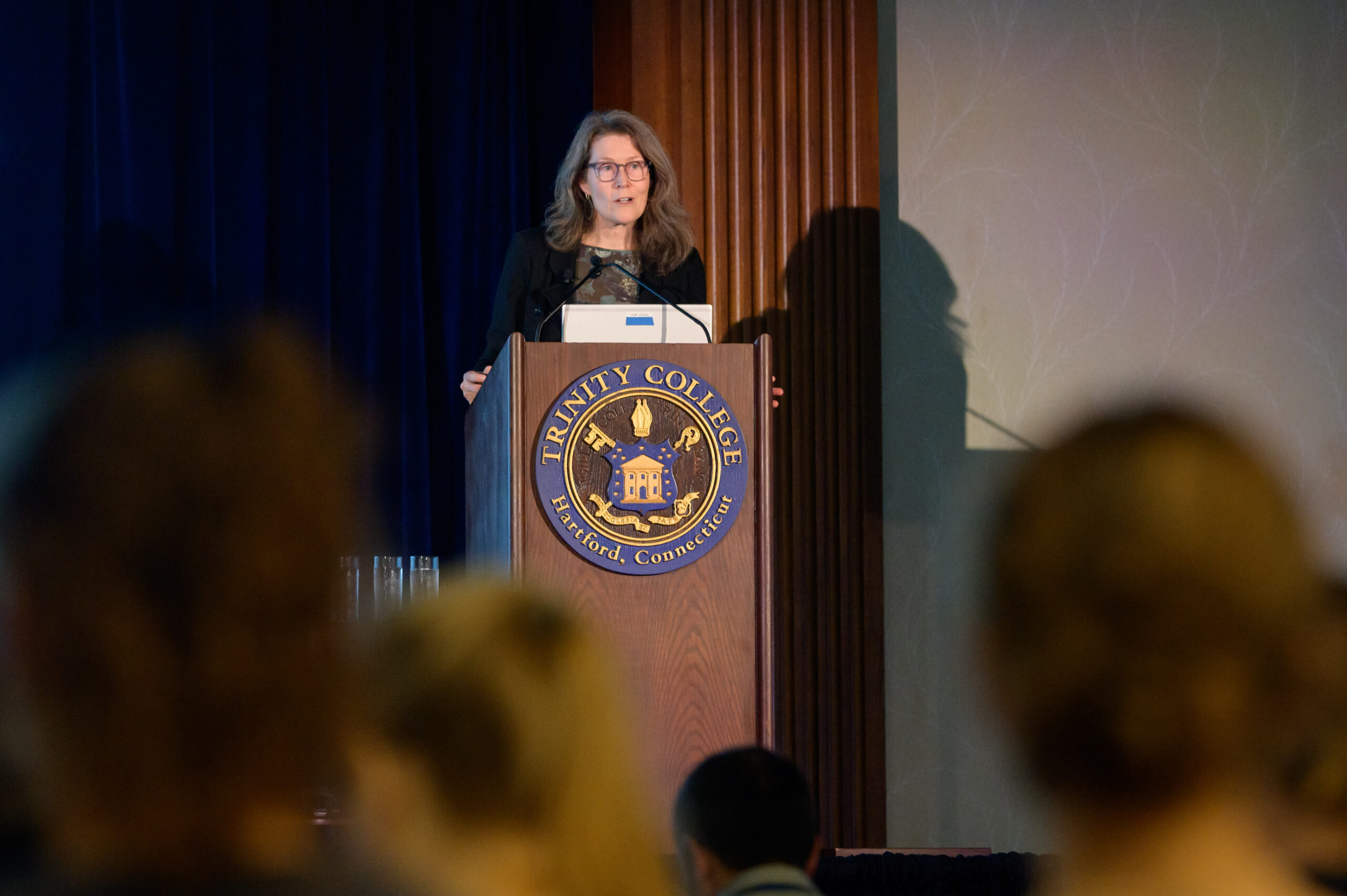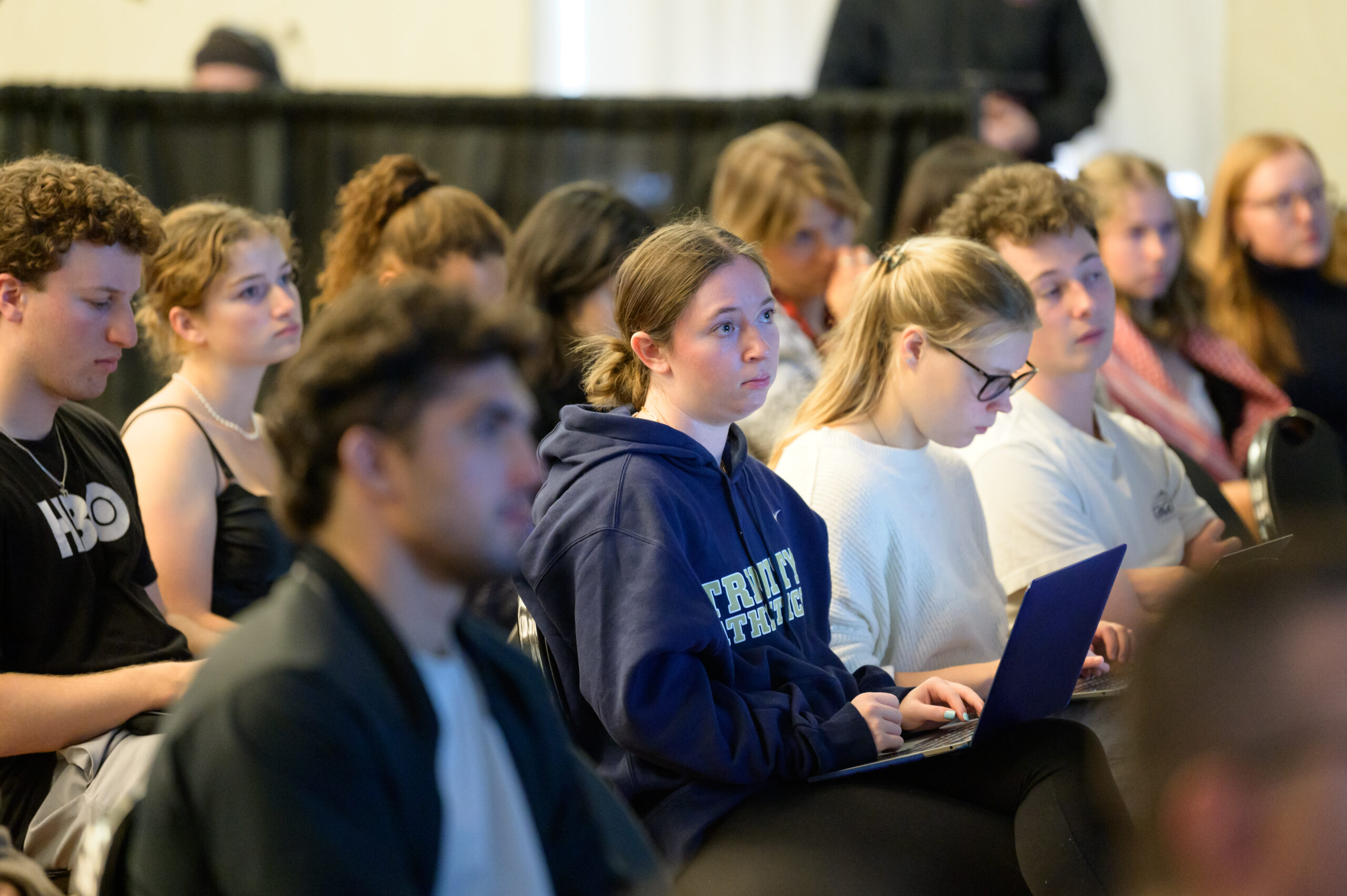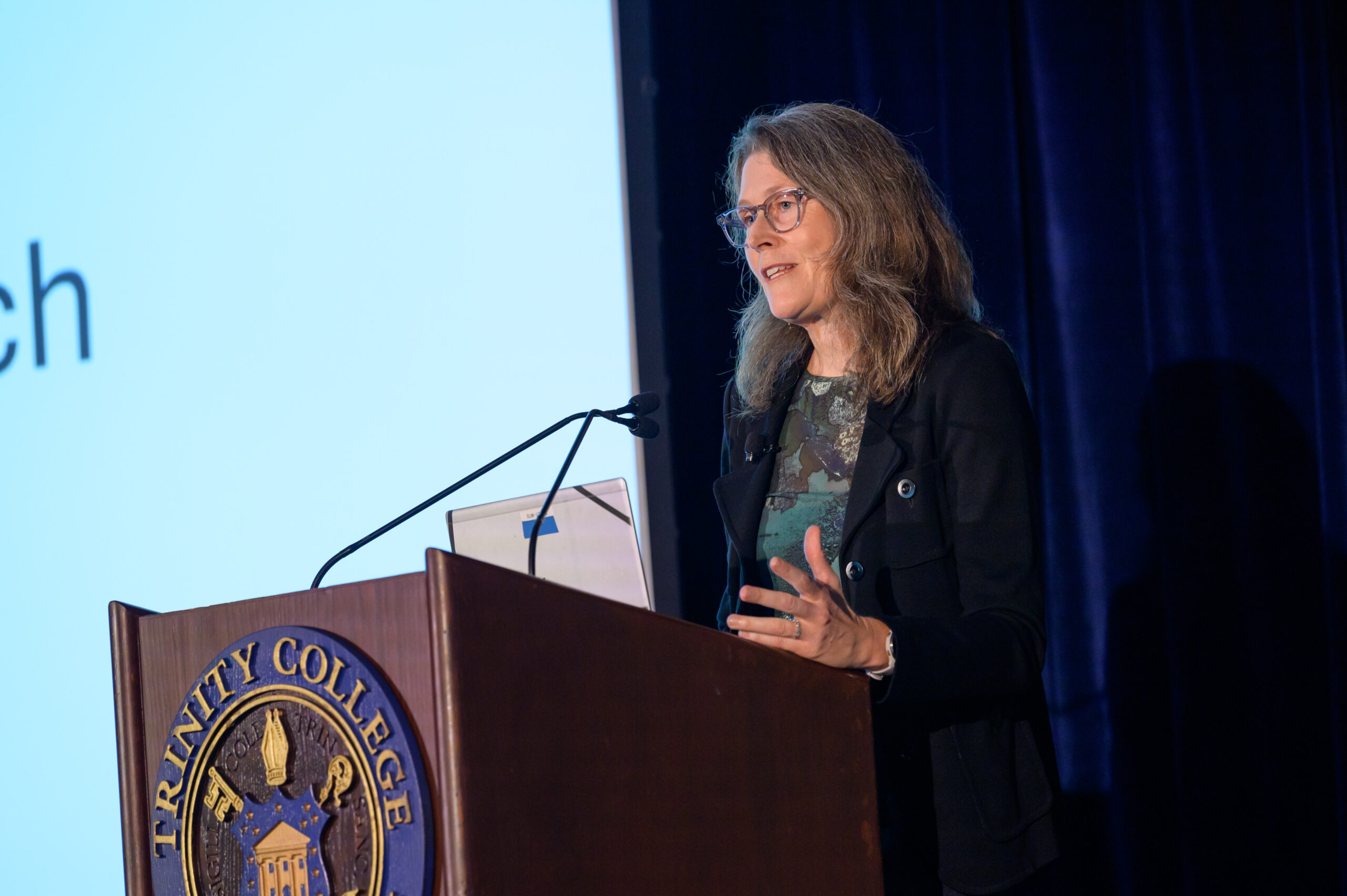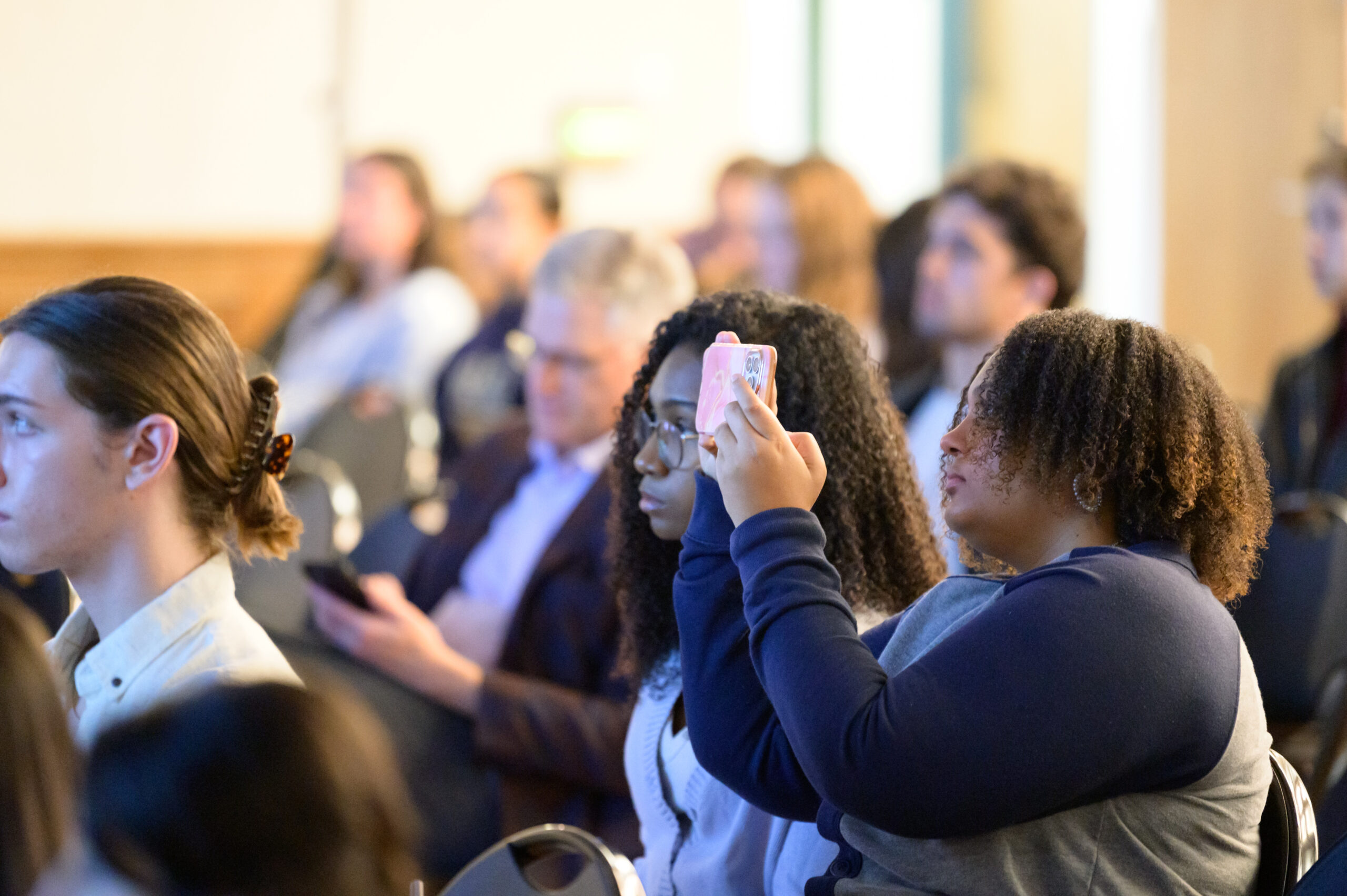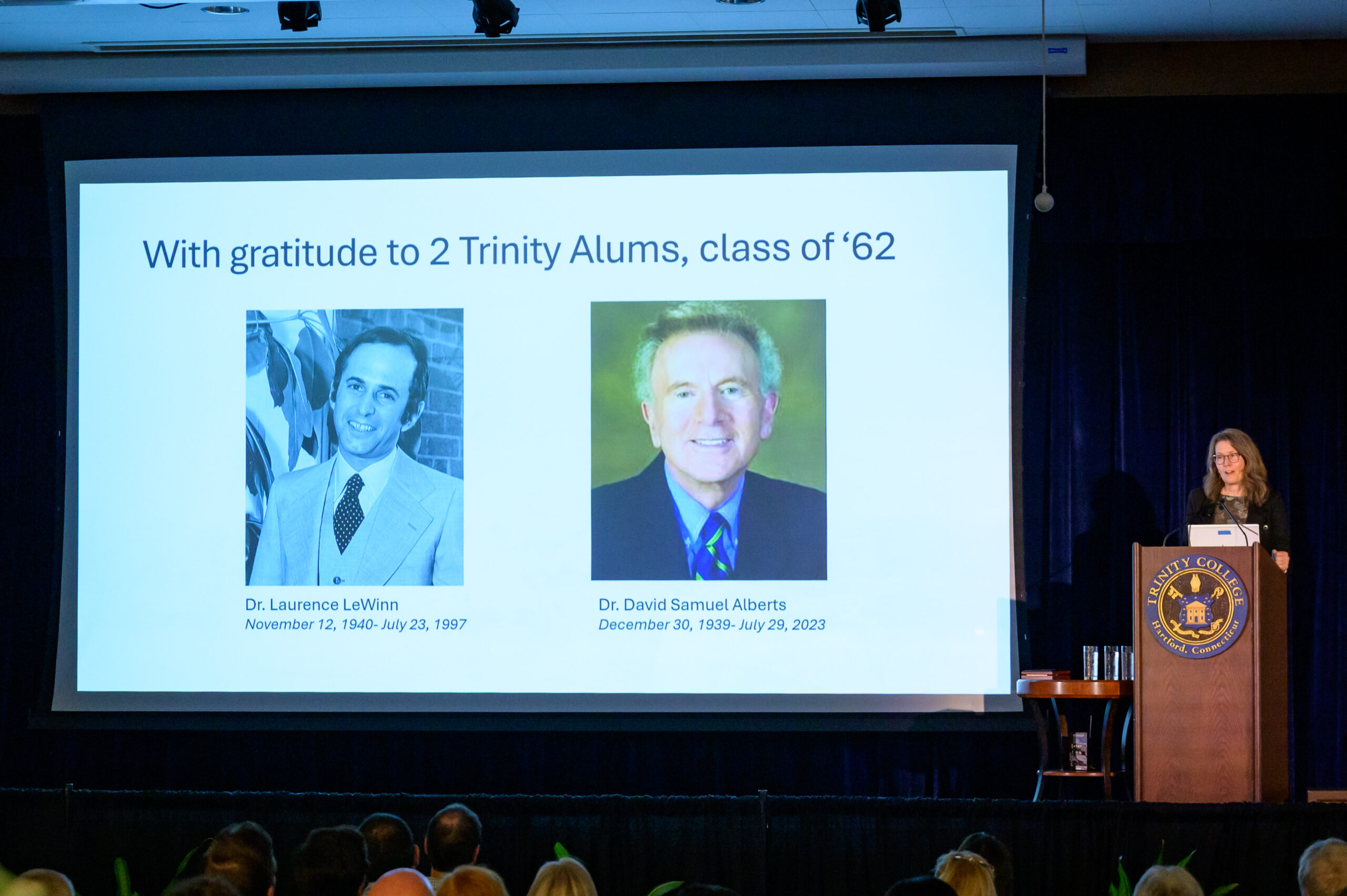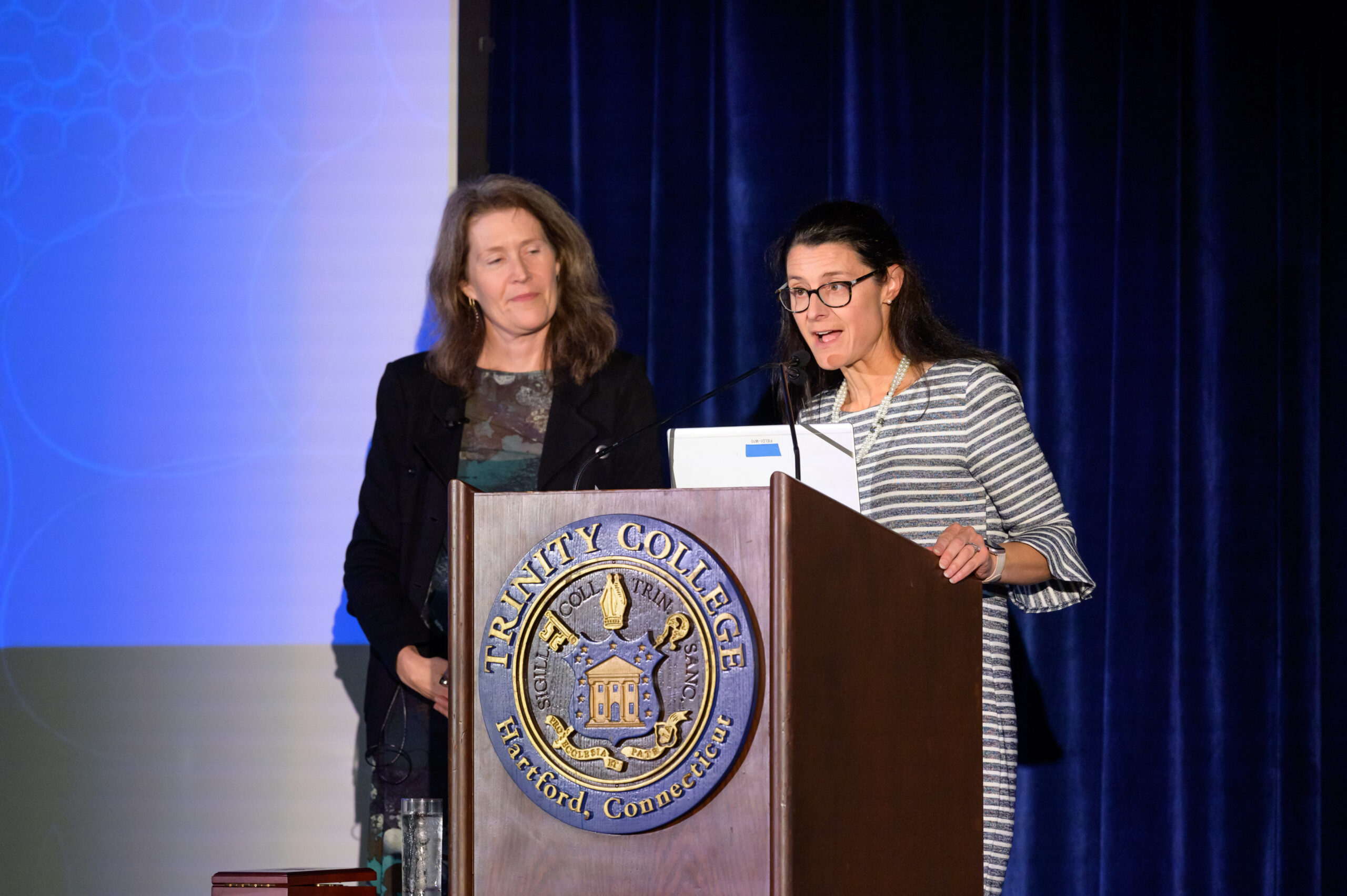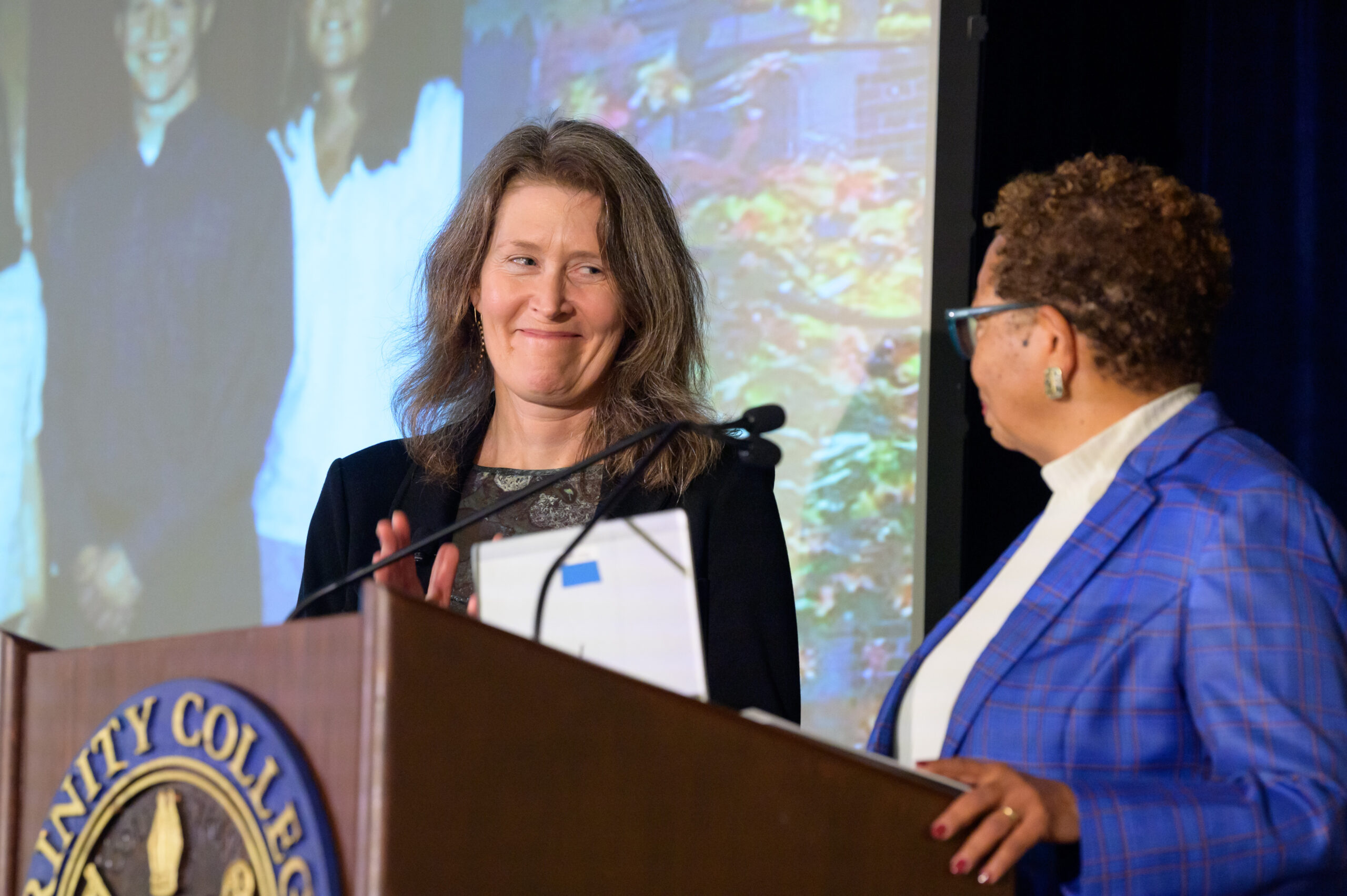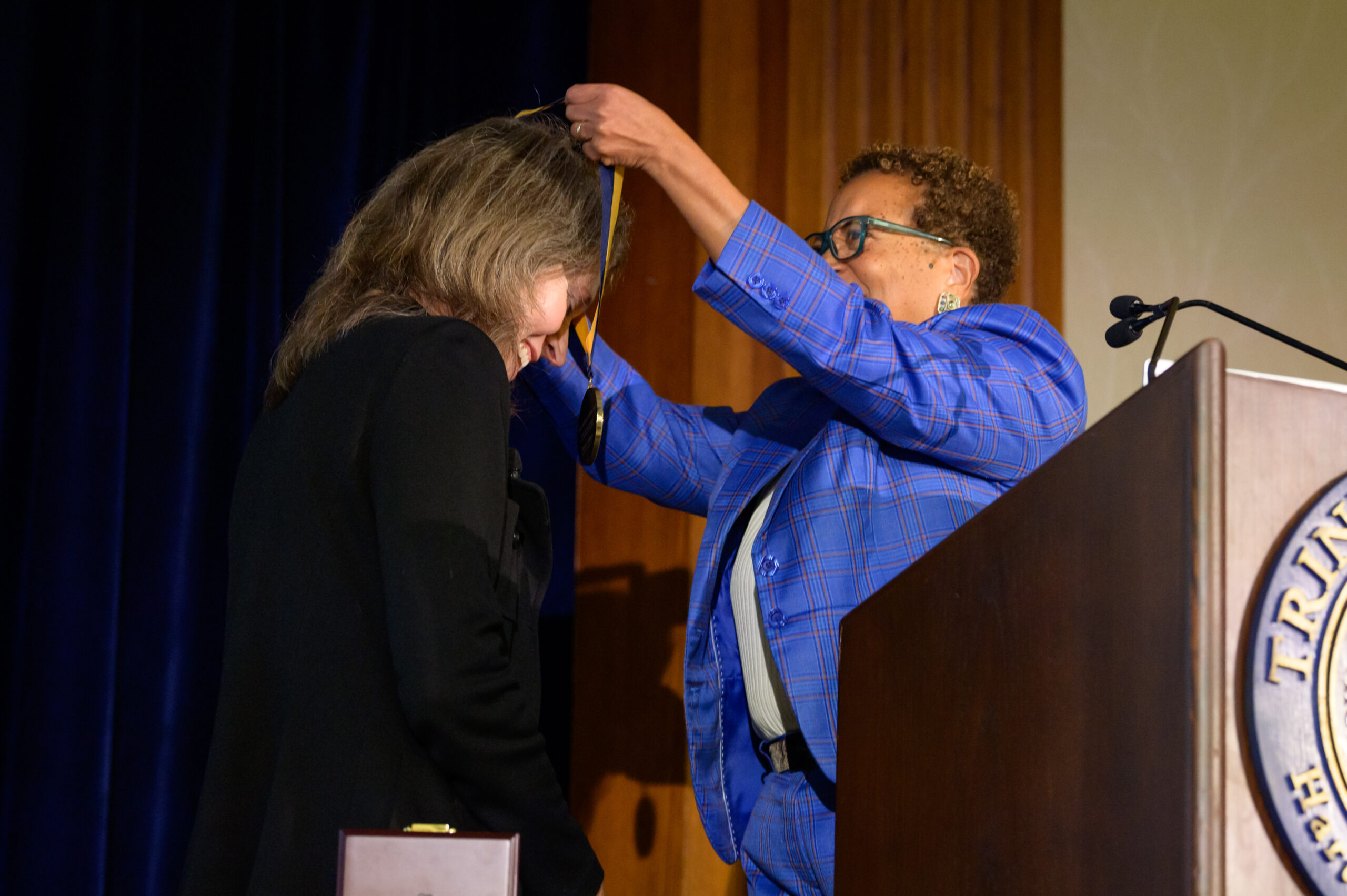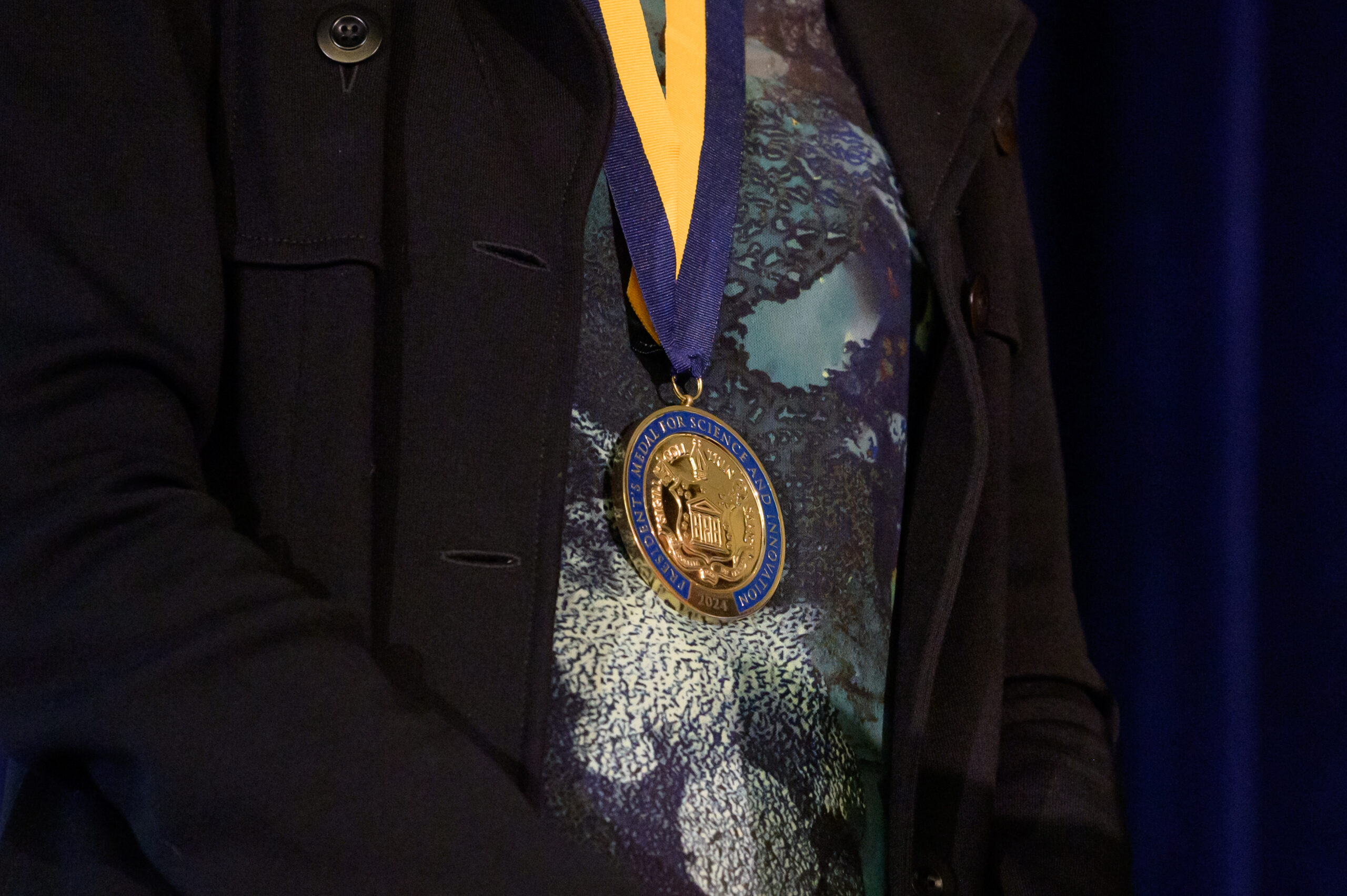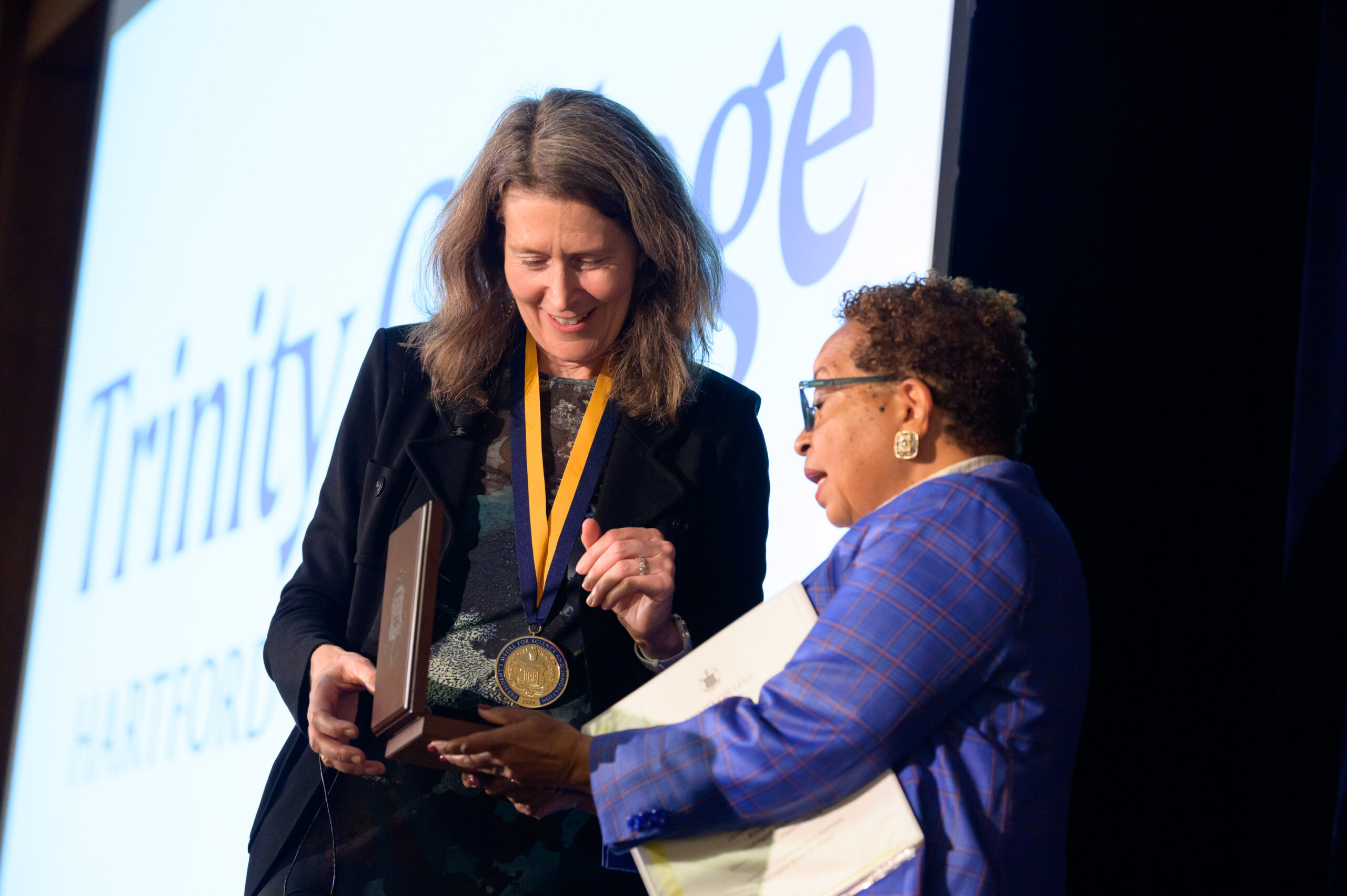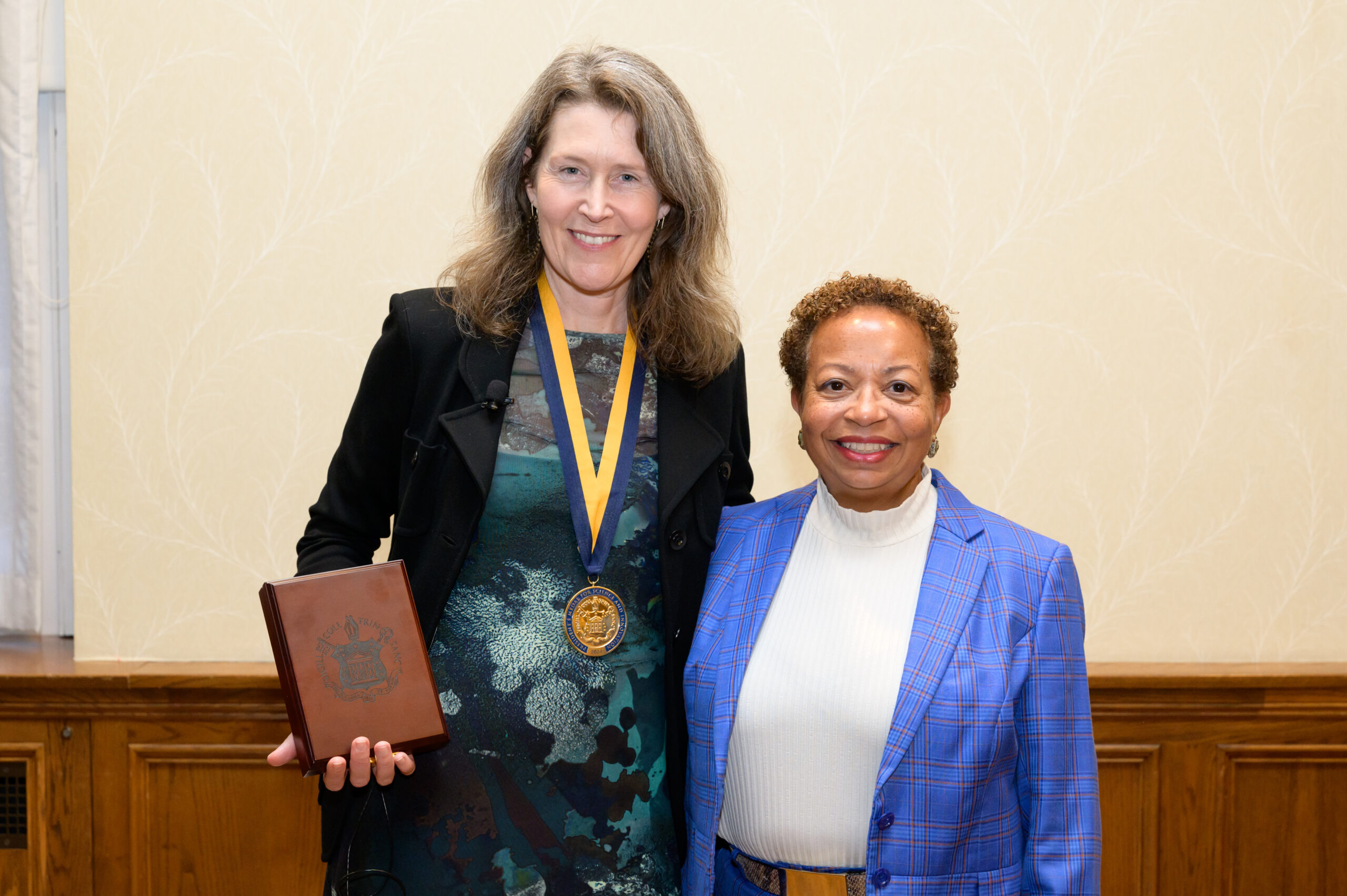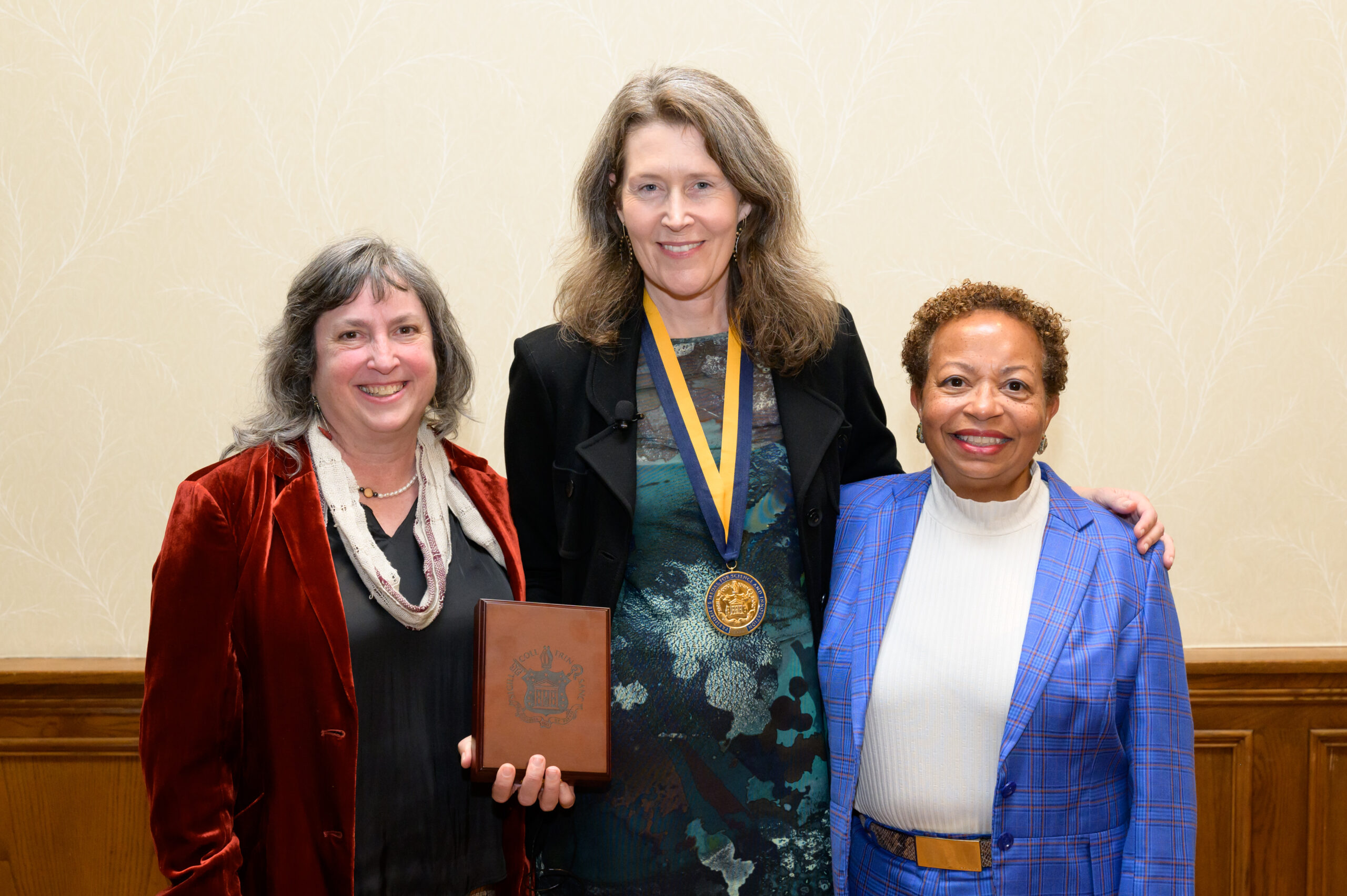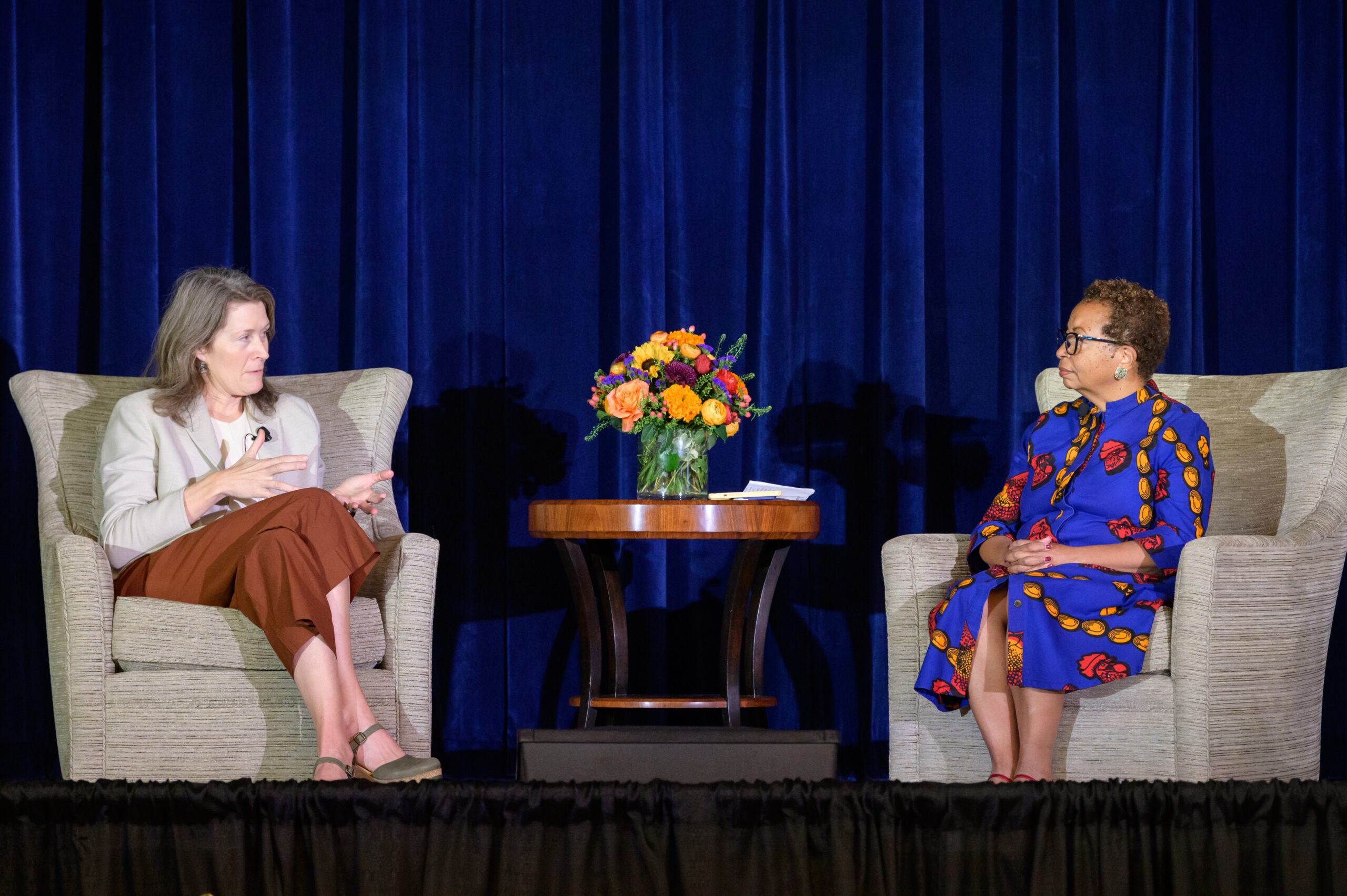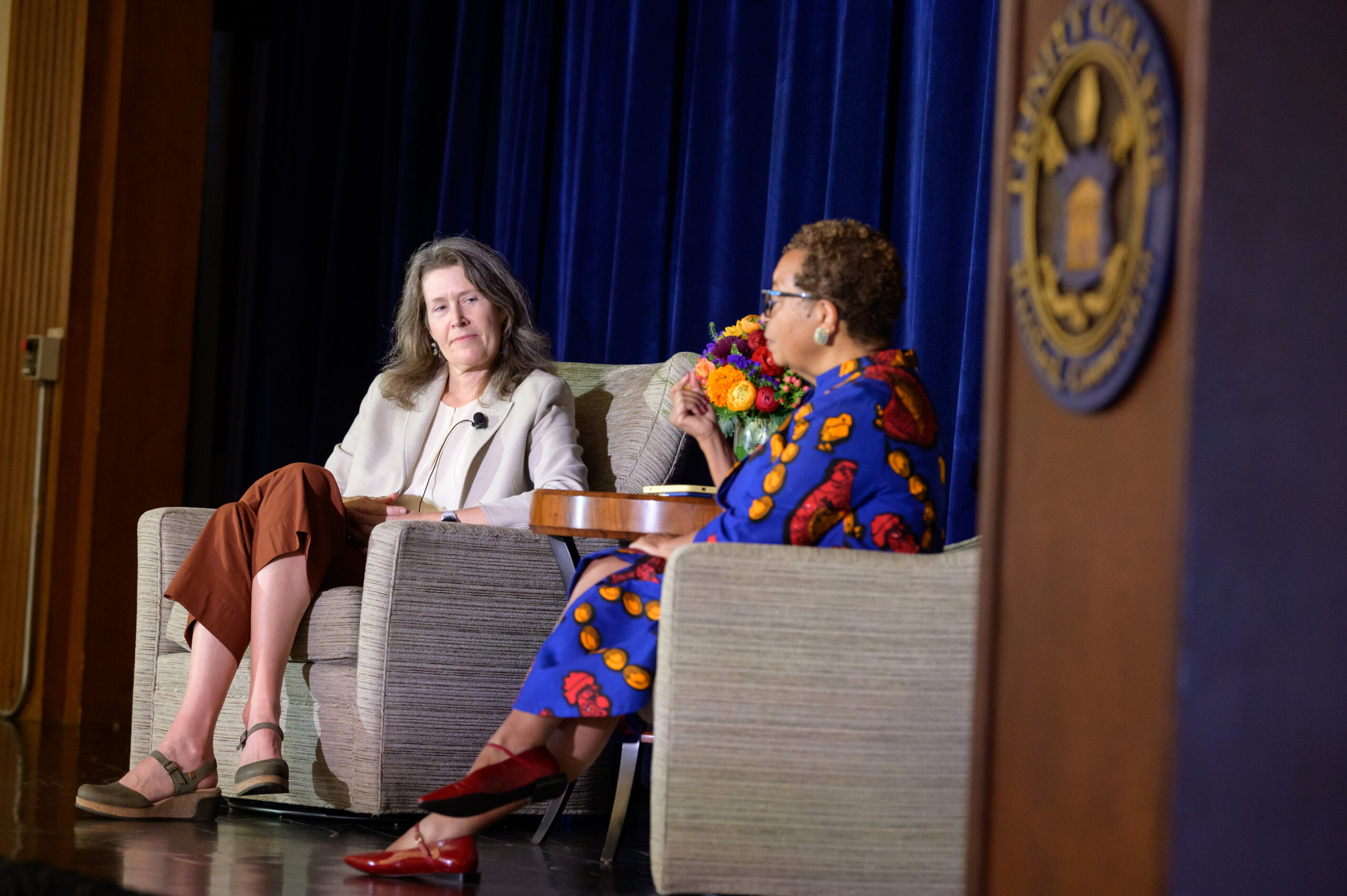Alumna Kaja LeWinn ’98 Receives President’s Medal for Science and Innovation
In recognition of her significant contributions to the research areas of neurodevelopment and mental health in children, epidemiologist Kaja LeWinn ’98 recently received the Trinity College President’s Medal for Science and Innovation.
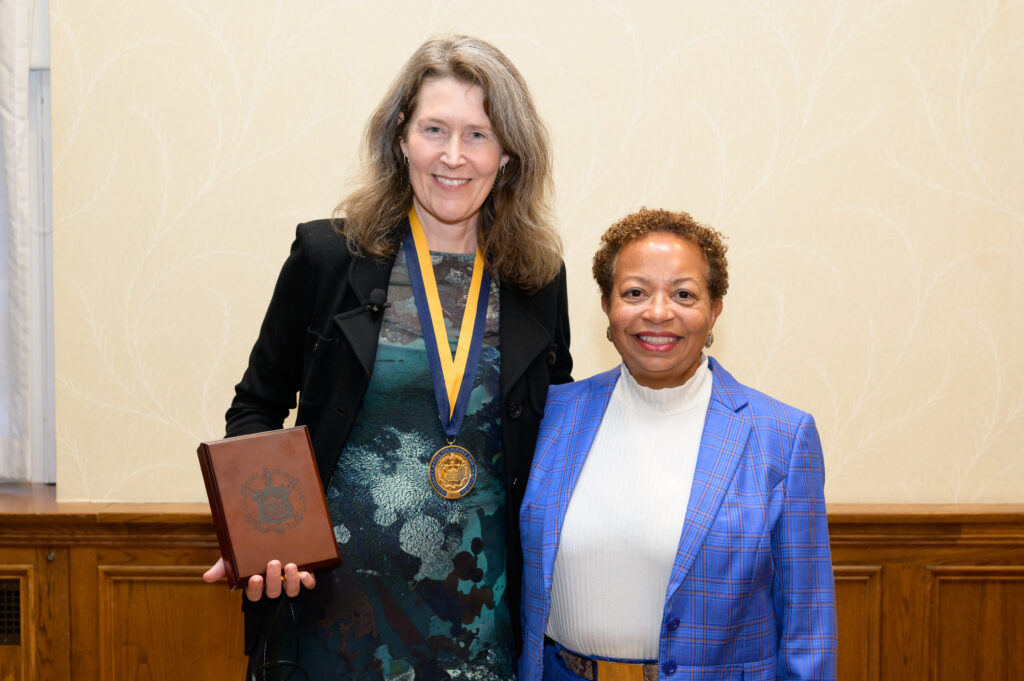
LeWinn, professor of psychiatry and behavioral sciences at the University of California, San Francisco, was presented with the medal on October 30, 2024, during a reception in the Washington Room of Mather Hall.
President Joanne Berger-Sweeney created the award to honor individuals who have gained prominence in science, technology, engineering, or mathematics and who represent the liberal arts ideal of empowering humanity through the sciences.
In conjunction with the medal ceremony, LeWinn delivered the Presidential Distinguished Lecture, titled “Achieving equity in child mental health and neurodevelopment: integrating insights from epidemiology, neuroscience, and psychology.”
The following day, Berger-Sweeney joined LeWinn on stage in the Washington Room for a conversation about their work as scientists and leaders.
During the discussion, LeWinn offered tips on optimizing neurodevelopment in young children. “Establish a protective, nurturing environment, and an environment with a lot of cognitive stimulation,” she said. “There’s the most evidence for [the benefits of] language exposure, so I always just tell parents, you should just talk to your baby. There are things like that that I think can make a big difference.”
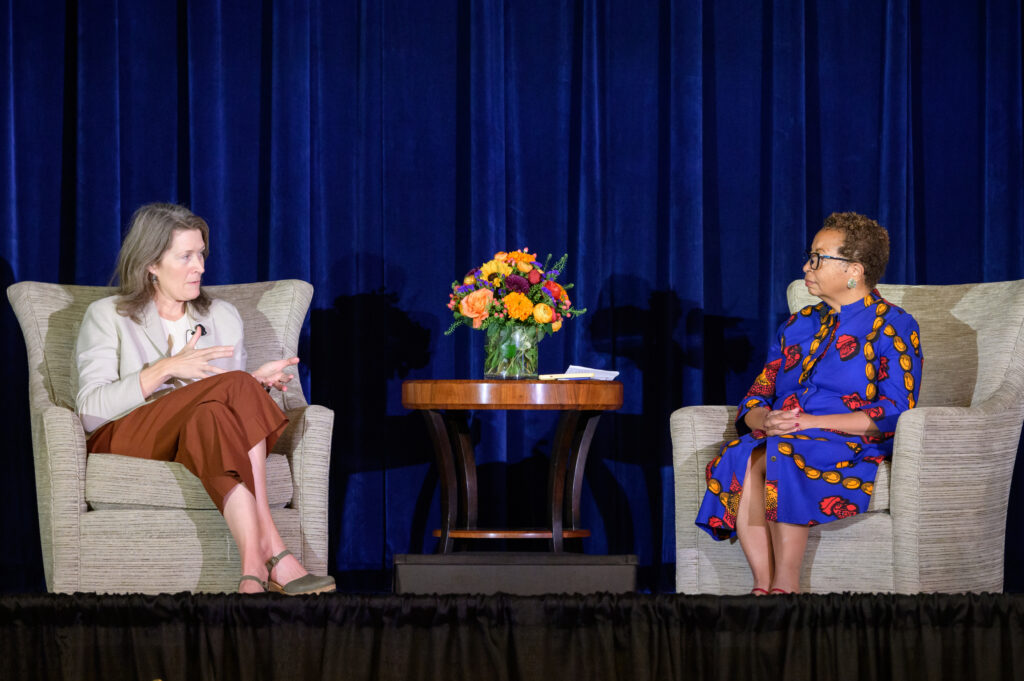
While she acknowledged larger systemic inequalities at play, LeWinn said certain policy changes and investments could help support families and their children, with the greatest impact felt when children are youngest. “There are already great programs shown to do wonderful things that are very evidence based, [such as] home programs to help new parents learn about infant development and parenting,” she said. “These are like Head Start, but more resourced, more intensive, and more attuned to individual needs… Setting people up with a foundation to succeed really seems to be the most effective thing to do.”
In response to a question from a student in the audience about how to encourage more students of color to pursue STEM fields and to provide them with support, Berger-Sweeney talked about her work to increase the number of faculty members of color at every institution she joins. “You have to change an entire ecosystem to really have an influence,” she said, “but one thing I was absolutely sure would make a difference was if we could bring in more people of color as STEM faculty members, where students could see themselves in those positions.”
After the discussion, LeWinn met with students in the Underground Coffeehouse for coffee and casual conversation, and later took part in the Psi Chi/Nu Ro Psi induction ceremony.
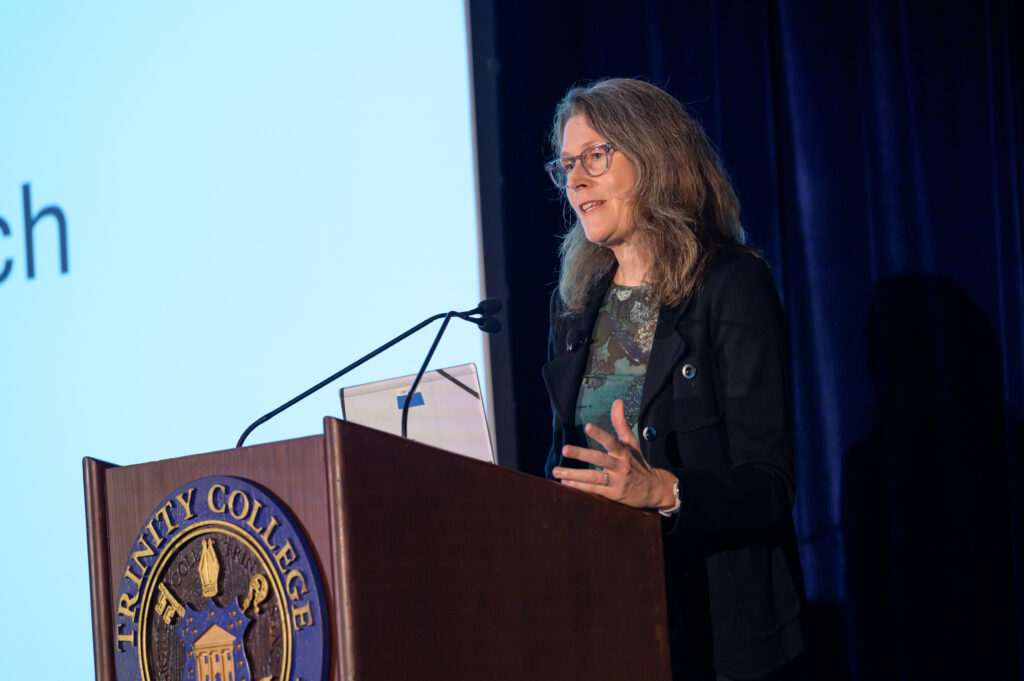
Driven by a conviction that all children should have the opportunity to realize their full potential, LeWinn’s research integrates perspectives from epidemiology, psychology, and neuroscience to identify the modifiable physical and social exposures that matter most for child neurodevelopment and mental health in underrepresented and understudied populations.
After graduating Phi Beta Kappa from Trinity with a major in behavioral neuroscience, LeWinn went on to earn a doctoral degree in social epidemiology from the Harvard School of Public Health. She was then selected for the prestigious Robert Wood Johnson Health and Society Scholars program, which brought her to San Francisco.
LeWinn is a leader of several regional and national epidemiological studies, including the National Institutes of Health-funded ECHO Consortium, which follows more than 30,000 U.S. children and their families. She has authored more than 130 peer-reviewed publications, and her work has been featured in The Atlantic, NPR, Fortune, and other news outlets.
The President’s Medal for Science and Innovation Advisory Committee, which includes prominent STEM faculty at Trinity College, leads the process to select recipients, and recommends to the president highly qualified candidates who have made significant advancements through STEM fields. Recipients are not necessarily graduates of Trinity but have made lasting contributions to their field. The introduction of the award earlier this year supports the College’s goal of elevating Trinity’s standing in the sciences nationally.
The inaugural recipient in spring 2024 was Eric R. Fossum ’79, H’14, the John H. Krehbiel Sr. Professor for Emerging Technologies at the Thayer School of Engineering at Dartmouth College, director of Thayer’s Ph.D. Innovation Program, and vice provost for entrepreneurship and technology transfer at Dartmouth. Fossum—a winner of the prestigious Queen Elizabeth Prize for Engineering—invented the CMOS active pixel image sensor used in almost all cell-phone cameras, webcams, many digital-still cameras, and in medical imaging, among other applications.
Learn more about the President’s Medal for Science and Innovation here.
Kaja LeWinn ’98 Receives President’s Medal for Science and Innovation
Kaja LeWinn ’98 Receives President’s Medal for Science and Innovation
Photos by Nick Caito.
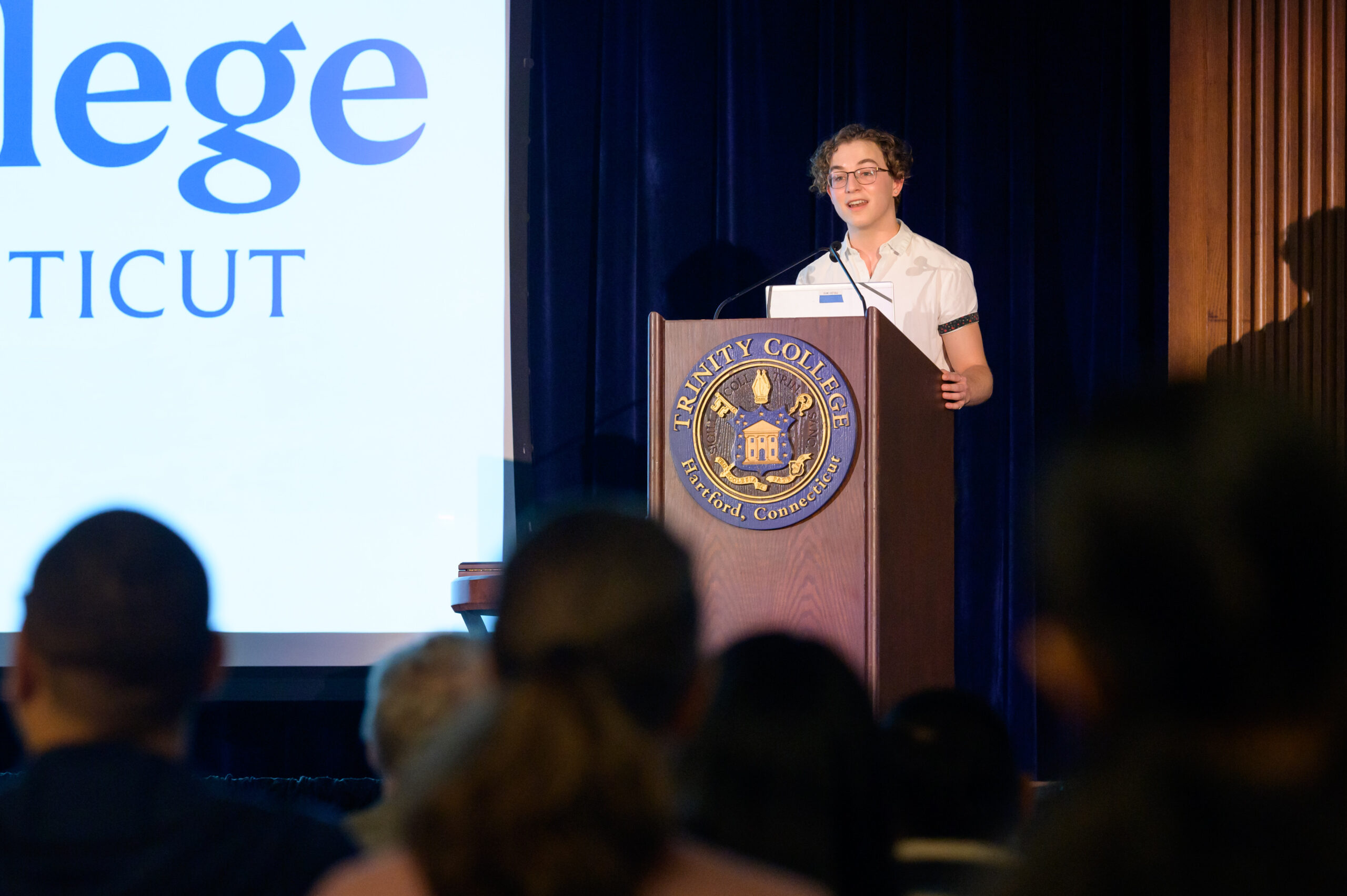
Photos by Nick Caito.
